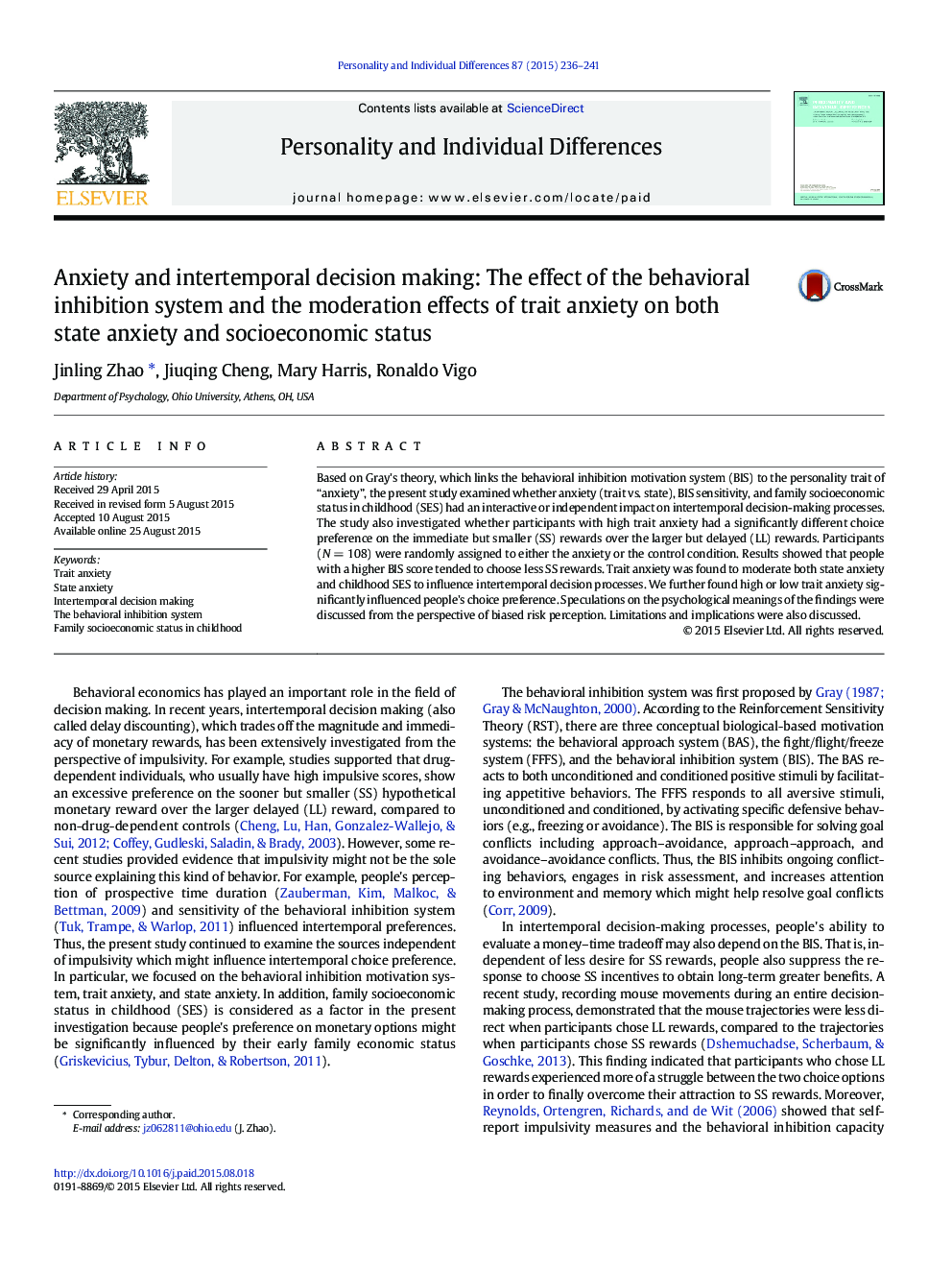| Article ID | Journal | Published Year | Pages | File Type |
|---|---|---|---|---|
| 7251020 | Personality and Individual Differences | 2015 | 6 Pages |
Abstract
Based on Gray's theory, which links the behavioral inhibition motivation system (BIS) to the personality trait of “anxiety”, the present study examined whether anxiety (trait vs. state), BIS sensitivity, and family socioeconomic status in childhood (SES) had an interactive or independent impact on intertemporal decision-making processes. The study also investigated whether participants with high trait anxiety had a significantly different choice preference on the immediate but smaller (SS) rewards over the larger but delayed (LL) rewards. Participants (NÂ =Â 108) were randomly assigned to either the anxiety or the control condition. Results showed that people with a higher BIS score tended to choose less SS rewards. Trait anxiety was found to moderate both state anxiety and childhood SES to influence intertemporal decision processes. We further found high or low trait anxiety significantly influenced people's choice preference. Speculations on the psychological meanings of the findings were discussed from the perspective of biased risk perception. Limitations and implications were also discussed.
Related Topics
Life Sciences
Neuroscience
Behavioral Neuroscience
Authors
Jinling Zhao, Jiuqing Cheng, Mary Harris, Ronaldo Vigo,
